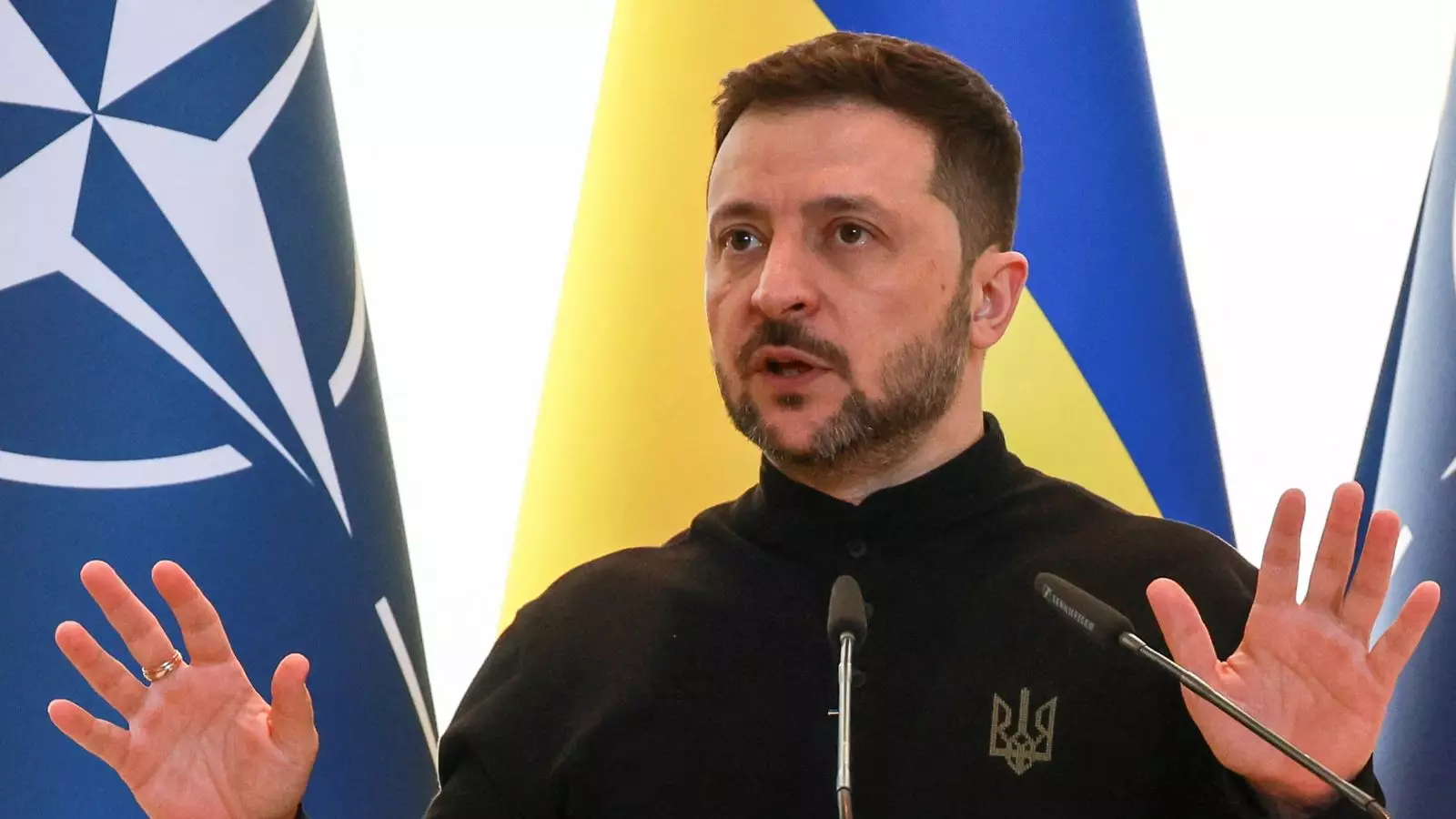In a world desperately seeking peace, the recent phone call between Sir Keir Starmer and President Volodymyr Zelenskyy serves as a stark reminder of the complexities and contradictions inherent in international diplomacy, particularly regarding the ongoing war in Ukraine. As the two leaders discussed the apparent need to end Russia’s brutal campaign, the enthusiasm for dialogue feels overshadowed by an unsettling reality: Talk is often a front for continued hostilities. Sir Keir’s unequivocal support for Ukraine is commendable, yet one cannot help but question its effectiveness in reshaping the dangerous landscape created by Vladimir Putin’s autocratic aggression.
While Starmer’s commitment to Ukraine is noteworthy, one must wonder—how genuine are Russia’s overtures concerning a ceasefire? Putin’s reported openness to bilateral talks has a whiff of insincerity. Making claims of a “positive attitude” towards peace during the Easter truce, which left both sides accusing each other of violating the terms, suggests a deeper strategic play. Is this merely a guise to mitigate international backlash while the war machine grinds on? A truce that cannot hold for even a fraction of its intended duration only underscores the fragility of any potential agreement, making clear that the interests of autocrats often outweigh the pleas of those caught in their crosshairs.
The Illusion of Ceasefires
The notion of a bilateral ceasefire invites skepticism; the Easter truce, which both sides allegedly breached over 2,000 times, reveals the fundamental distrust and ongoing hostilities that define this war. Zelenskyy’s assertion that Russia is perpetuating the conflict by breaking its promises only reflects a vicious cycle where negotiations become a tactical tool rather than a genuine attempt to achieve peace. We are witnessing a grim spectacle where leaders feign the prospect of dialogue while failing to deliver substantial actions that can traverse the chasm of mutual hostility.
The disparate realities painted by both Moscow and Kyiv are not just disheartening; they are indicative of a larger framework in which diplomacy is rendered ineffective. In such a climate of mutual grievance, how can any ceasefire be considered durable when the parties involved appear more focused on gaining tactical advantages than embarking on a sincere quest for lasting peace? The interactions between Starmer and Zelenskyy, while optimistic in tone, lack any real leverage to compel a reluctant Putin into compliance.
The U.S.’s Reluctant Role
Enter the United States, whose involvement in this geopolitical quagmire adds yet another layer of complexity. Donald Trump’s recent remarks about a potential peace deal, coupled with the U.S.’s precarious position to withdraw its diplomatically-brokering efforts if tangible progress is not made, highlights a troubling reality. The notion that this war can be resolved through transient negotiations and hastily arranged deals overlooks the systematic devastation that has unfolded in Ukraine. This is not just a territorial dispute; it is a battle for sovereignty and international norms that have far-reaching implications well beyond Eastern Europe.
When Trump suggests that both countries will “start to do big business” post-war, it trivializes the suffering endured by millions in Ukraine. The focus should not be on business prospects but on a humane approach to peace that prioritizes the security and rights of the Ukrainian people above all else. Such statements are not just naive; they risk undermining the gravity of the conflict and the necessity for a genuine, comprehensive dialogue that acknowledges the entanglements of history and identity.
A Call for Genuine Action
Amidst the back-and-forth banter of leaders and the grandstanding that accompanies it, the plight of Ukrainians remains an urgent, heart-wrenching reality. If the dialogue between Starmer and Zelenskyy is to yield any meaningful outcome, it must pivot from mere words to concrete actions directed at achieving a legitimate ceasefire and, ultimately, a progressive resolution. The UK, alongside its allies, needs to ratchet up pressure, demanding a ceasefire that is verifiable and enforceable rather than rhetorical fluff used to mask an ongoing war.
In this context, the narrative of the conflict is far from over. While political conversations continue, what is vital is that those in power translate talk into deeds that foster a truly just and lasting peace in Ukraine—not merely the cessation of hostilities as a tactical reprieve. Only then can hope take root amid the ashes of destruction that have become synonymous with this brutal war.



Leave a Reply